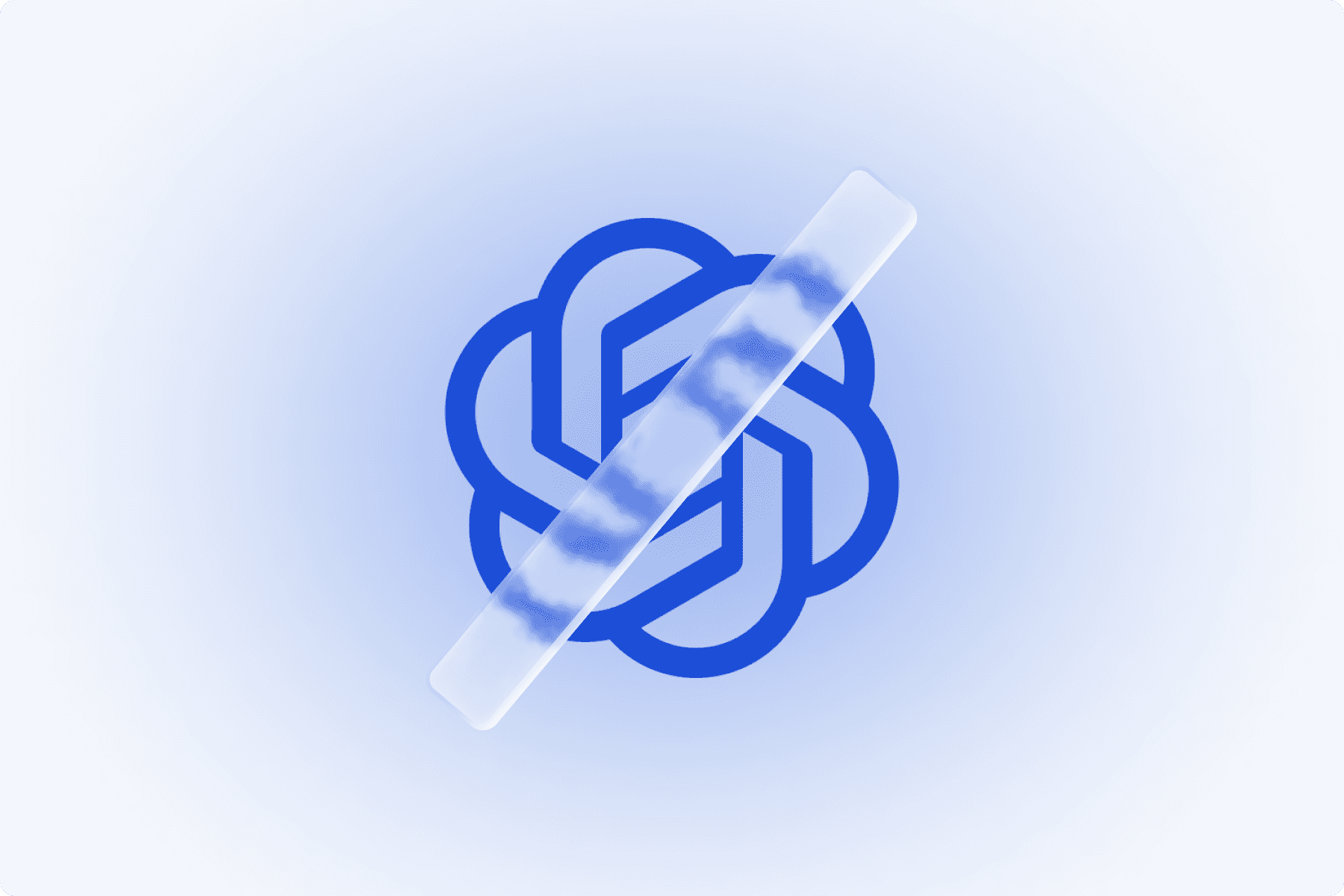Companies Banning ChatGPT (2025): The Enterprise Security List

Moveo AI Team
December 15, 2025
in
🤖 AI automation

OpenAI’s ChatGPT has undeniably accelerated productivity, allowing employees to generate code, draft content, and automate routine tasks. However, for the enterprise sector, widespread adoption has introduced significant vulnerabilities. The primary concern is no longer just utility… it is data sovereignty.
Many global organizations have restricted or outright banned the use of public generative AI tools on corporate networks. The reason is simple: control. When employees feed proprietary code or sensitive financial data into a public model, that information effectively leaves the secure corporate perimeter.
Here is the current landscape of which companies have banned ChatGPT, why they are doing it, and how forward-thinking enterprises are solving the deadlock between innovation and security.
Why are companies banning ChatGPT?
The hesitation among major corporations is not due to a lack of interest in AI, but rather a strict adherence to risk management. The core issues driving these bans include:
Data Privacy & Leakage: Public LLMs learn from user input. Proprietary data (source code, financial projections, customer PII) entered into a public interface could potentially be surfaced in responses to other users or used for model training.
Regulatory Compliance: For industries like banking and healthcare, data processing must adhere to strict frameworks (GDPR, HIPAA, SOC2). Sending data to third-party servers without an explicit Data Processing Agreement (DPA) is a compliance violation.
Hallucinations & Liability: In high-stakes environments, an AI model that "invents" facts creates legal liability. Financial institutions cannot afford AI that hallucinates regulatory advice.
→ Learn more: Debt Collection Practices & FDCPA: An Enterprise AI Guide
Which companies have banned ChatGPT?
Several industry leaders have moved to restrict public GenAI usage to protect their intellectual property and client data.
Financial Services
Banks operate under the strictest regulatory scrutiny. Consequently, the financial sector was among the first to block access to public chatbots.
JPMorgan Chase: Restricted usage across the firm to ensure compliance with third-party software regulations.
Deutsche Bank: Banned access to prevent potential leakage of confidential banking data.
Wells Fargo: Limits usage to avoid privacy risks associated with third-party data handling.
Bank of America, Citigroup, & Goldman Sachs: Have all implemented similar restrictions, prioritizing proprietary internal AI development over public tools.
Technology & Telecommunications
Tech giants understand the underlying technology best, which is precisely why they are cautious about source code leakage.
Apple: Restricted internal use of ChatGPT and similar tools (like Copilot) after concerns that employees could leak confidential product roadmaps or code.
Samsung: Initially banned ChatGPT after an incident where engineers accidentally uploaded sensitive source code to the platform. Note: Samsung has since moved toward developing internal, secured AI environments to mitigate this risk while retaining utility.
Amazon: Corporate legal teams have warned employees against sharing confidential code or data, as outputs could mimic internal IP.
Verizon: Announced that ChatGPT is not accessible from corporate systems to prevent the loss of control over customer information and source code.
Defense & Other Sectors
Northrop Grumman: As a defense contractor, security is non-negotiable. Public AI tools are generally blocked to protect national security data.
Spotify: Has restricted usage in specific contexts, particularly battling AI-generated content that infringes on artist royalties.
Countries where ChatGPT is banned
While corporate bans focus on IP, national bans often center on censorship or internet sovereignty.
Government-imposed bans: China, Russia, North Korea, Iran, Syria, and Cuba have blocked access to OpenAI’s services due to strict internet controls and geopolitical tensions.
Regulatory pauses: Italy became the first Western country to temporarily ban ChatGPT in 2023 over GDPR concerns. The ban was lifted after OpenAI implemented stricter privacy controls, but it set a precedent for European regulatory scrutiny.
The Enterprise Solution: Governance, Not Prohibition
Banning Generative AI is a temporary stopgap, not a long-term strategy. The competitive advantage provided by AI is too significant to ignore. The solution for the enterprise is not to avoid AI, but to deploy it within a secure, controlled architecture.
Leading organizations are shifting toward Enterprise Conversational AI platforms, such as Moveo.AI, which provide the reasoning capabilities of LLMs without the data risks.
→ Learn more: Why LLMs are addicted to pleasing you (and not built for the truth)
Why the shift?
Private Cloud & On-Premise Deployment: Unlike public chatbots, enterprise platforms allow models to run within the company’s infrastructure. Your data never trains a public model.
Reliability & Compliance: In a debt collection use case, for example, a Moveo.AI agent can negotiate payments and calculate installment plans in real-time. Crucially, it does so using deterministic guardrails, ensuring the math is perfect and the interaction is compliant with regulations like the FDCPA.
Role-Based Access: Sensitive data is only accessible to agents and users with specific permissions, mirroring the security hierarchy of the organization.
The future belongs to companies that can integrate AI agents into their core workflows (customer service, collections, and internal ops) while guaranteeing that reliability and compliance remain absolute.
Innovation Without the Risk
As we see more companies banning ChatGPT to protect their IP, the market is bifurcating.
On one side, organizations are paralyzed by security fears; on the other, leaders are adopting purpose-built Enterprise AI. The difference lies in control.
Whether it is an AI agent calculating debt installments or automating internal support, the requirement is zero-trust security and deterministic accuracy. Platforms like Moveo.AI bridge this gap, allowing enterprises to harness the reasoning of LLMs without ever exposing their data to the public cloud.